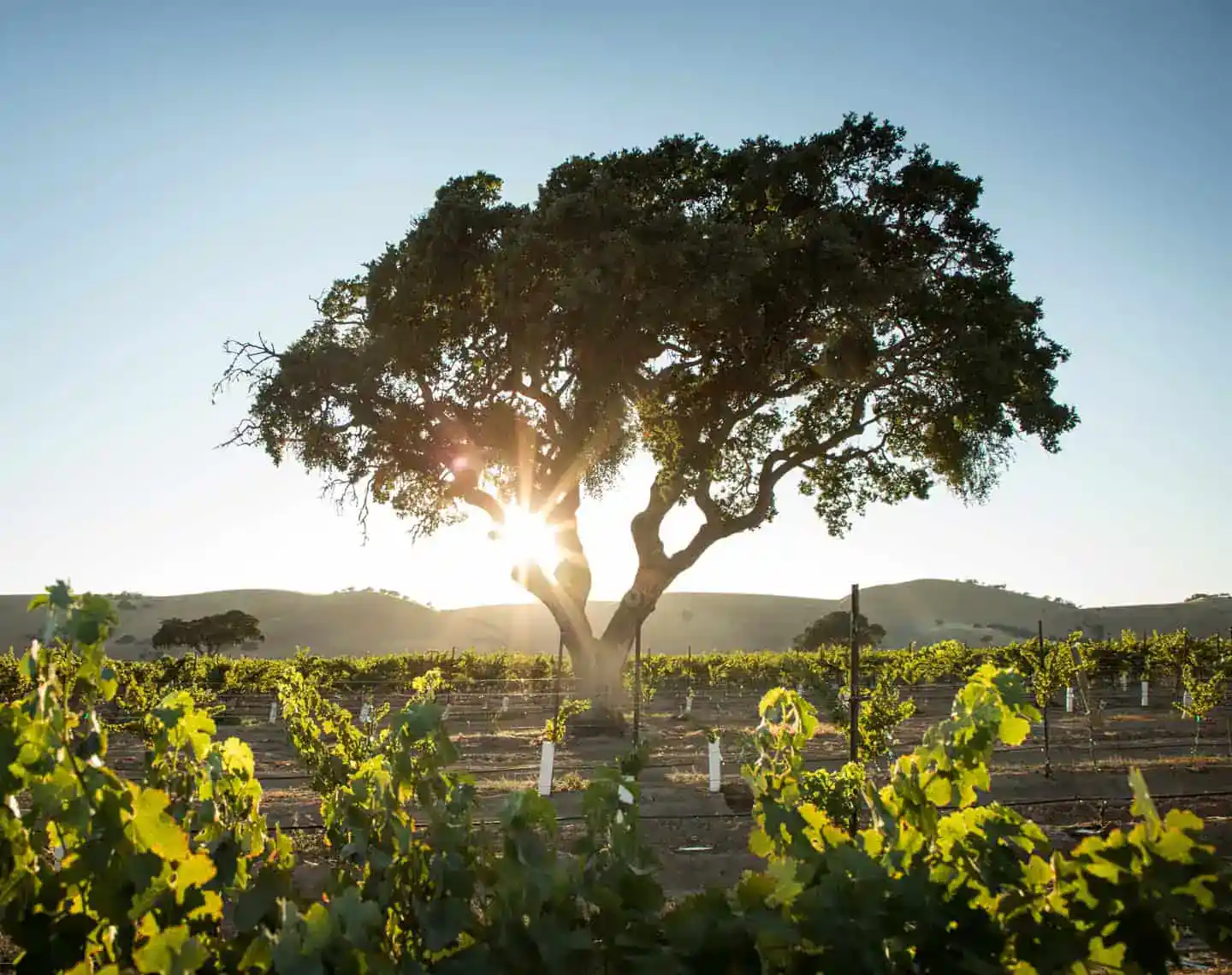“What’s that smell?” This seemingly innocent question is actually a doozy when it comes to wine. Of course, there’s only one way to find out! When wine tasting, be sure to submerge your nose as deeply into the glass as possible. Take a big, long, whiff. Close your eyes. Allow the wine’s nuanced aromas to play upon your senses. Breathe in again. Do you smell faint hints of honeysuckle? The scent of fresh earth after a rain? Maybe the wine is slightly smoky and spicy, like the inside of your grandfather’s cigar box? If you want to up you tasting game, smell the world around you. Every scent you encounter—from a hike in the woods to a stop at the flower or cheese shop—might be found in your next bottle of wine. To guide your nose along, here are five common aromas, simplified:
1. “Earthy”
When you’re swirling a really good glass of local Mourvedre, the first thing that comes to mind may not be “dirt.” Think again. Plenty of delicious wines can be categorized as “earthy,” ranging from “forest floor” to “barnyard.” An old red Bordeaux varietal like Cabernet Sauvignon may remind you of mushrooms in a glorious way—and what better wine to go with a big, meaty steak? If you take a whiff and smell the great outdoors, you know you’re onto something. Keep trekking! Pair With: Steak, blue cheese, caramelized onions. Wine Pick: Poalillo Vineyards’ 2004 Cabernet Sauvignon.
2. “Fruity”
Plenty of wines claim to be “fruity,” but the real question is: What kind of fruit? Do you smell dried cherries or cranberries, as you might in a GSM, or do you smell fresh grapefruit, as you might find in a Sauvignon Blanc? We’ve all eaten—and therefore, smelled—most fruits out there, so make a point of differentiating right off the bat. Next time you have a bottle of Syrah full of “dark fruit” characteristics, take your time to tease out the true aromas, whether they be plum, prune, blueberry, or blackberry. Pair With: Barbecued meats, tomato-based dishes. Wine Pick: Rangeland Winery’s 2013 Zinfandel.
3. “Floral”
Some wines smell so good you want to dab them behind each ear. Viognier is famous for its up-front floral charm (did I just smell a whiff of citrus blossom?) and Riesling can be downright rosy from time to time. Although many whites are considered flowery, don’t discount the reds. Next time you swirl a glass of Petite Verdot or Malbec, pause, and ask yourself: “Do I feel like I’m walking past a row of violets?” Not sure what violets smell like? Visit your local flower shop and stop to smell the blooms. After all, life is short! Pair With: Soft, creamy cheeses, dessert.
4. “Herbaceous”
We all cook with herbs and spices, right? Herbacious wines, as you might have guessed, appeal to food like no other. Do you smell a hearty dose of black pepper (commonly found in Syrah), sweet basil, or sharp chive? Cinnamon, an unlikely wine scent, can be found in a deep reds like Cabernet Sauvignon or a light Sauvignon Blanc. Do you smell mint in the Mourvedre? Allow your inner-chef to take the lead and you’ll find yourself planning the dinner menu in your head! Pair With: Lamb, rosemary potatoes, cedar-smoked salmon. Wine pick: Sculpterra Winery’s 2013 Pinot Noir.
5. “Minerality”
Minerals have no scent, this is true. However, don’t let that stop you from catching the brisk minerality in your next wine (chances are, if it aint fruity, herby, oaky, or floral, it’s got a mineral thing going on). Do you smell salty oyster brine, chalk, or the sidewalk after it rains? Do you smell gravel or crushed rock? Dry white wines with crisp acidity (Pinot Grigio, Albarino…I’m looking at you) are most famous for giving off this lesser-known aroma. Want to know true minerality? Put a few wet rocks in your mouth for reference. Yes, I double dog dare you. Pair With: Ceviche, oysters and crisp veggie dishes. Wine Pick: Clavo Cellars 2011 Grenache Blanc.
This blog was written by Hayley Thomas, food and wine writer for New Times and PasoRoblesWineries.net. You can reach her at [email protected].







